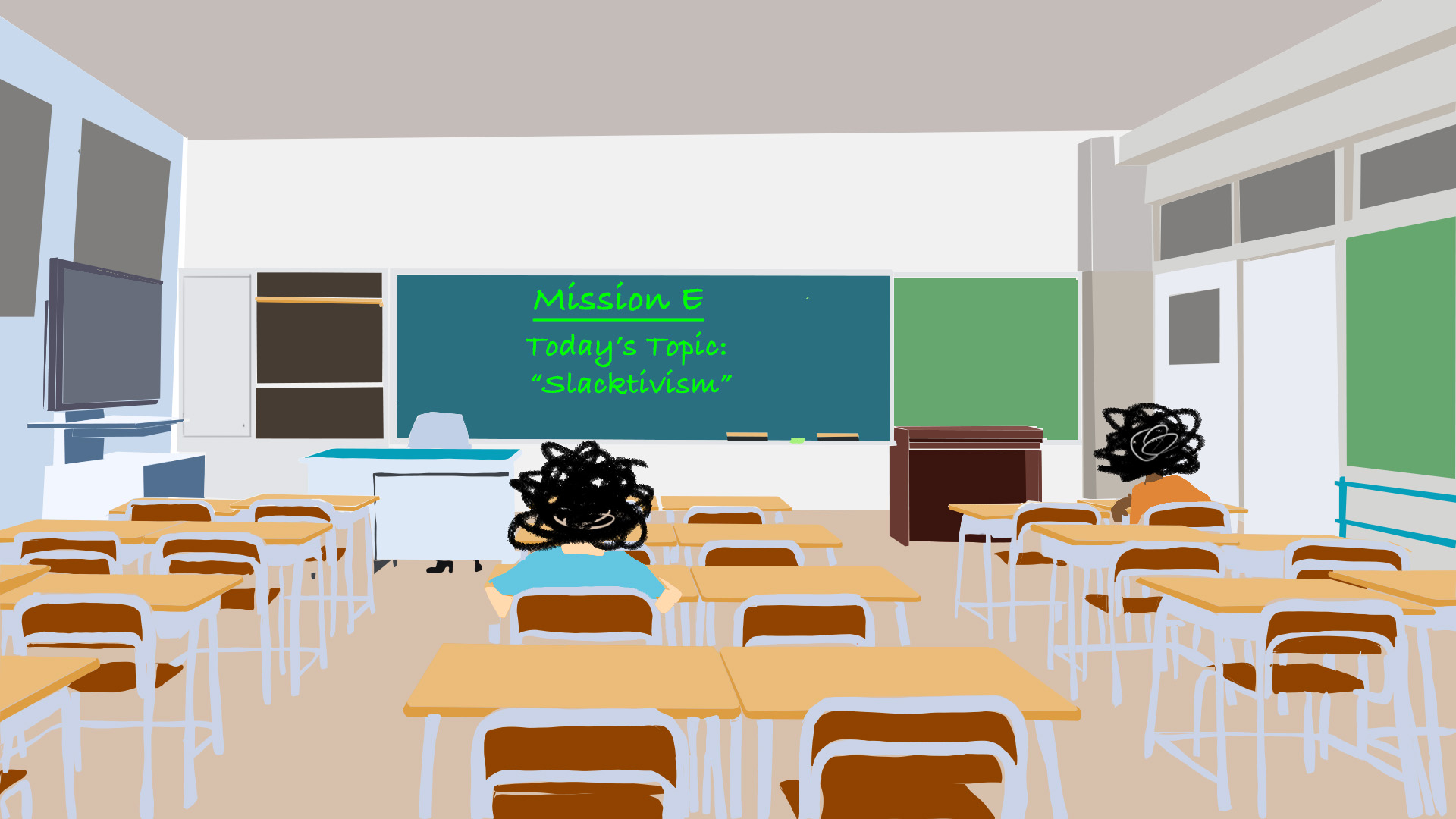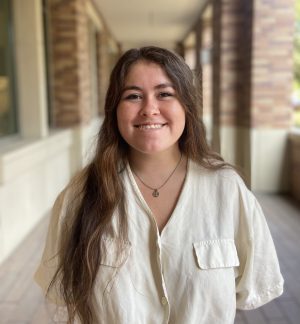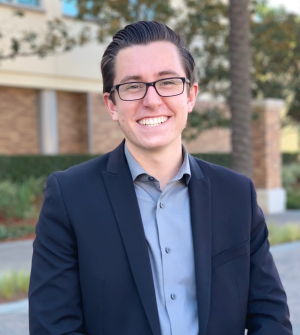
As the clock ticked closer to 9 p.m., Eva Stanton waited in an Argyros Forum classroom, hopeful that one student would walk through the door for the first Mission Environment Club meeting.
Just one student would make her unexpected transition to Mission Environment president worthwhile.
“I wasn’t here to be the president, I was here to save a dying club,” she said.

Four students attended the meeting, giving Stanton hope that there’s passion out there. But she’s worried that across campus there might be a larger problem: slacktivism.
Slacktivism is an action to endorse and promote political or social causes and movements but with minimal commitment, effort, or risk. Students have returned to campus this year passionate about a myriad of issues, but motivating them to do more than just posting messages online is a challenge.
A study conducted by the University of Michigan found that young people often participate in politics over social media to display a false sense of effort and therefore excuse themselves from participating in real action.
It’s easy to mindlessly repost an infographic about an important issue, but active participation takes more effort.
Due to minimal support from the student body, student leaders like Stanton are discouraged that many of their peers appear to be slacktivists rather than activists.
Stanton stepped into her role as president of Mission Environment – a student-led environmentalism club advocating for sustainability on campus – when no other student was willing.
If Stanton hadn’t taken over, the club would have ceased to exist.
Philip Goodrich, the Student Government Association (SGA) president, worries that apathy is a problem on campus.
Like Stanton, Goodrich can’t get students to show up.

“No one comes to SGA. We have to bribe people just to come to our meetings and town halls,” he said. “People like to complain about student issues, and I just get disappointed when people don’t actually utilize the $1.3 million dollar organization they have in place to do stuff.”
Goodrich sees a gap between students complaining about issues and actively demanding physical change.
“There’s a lot of bark, no bite,” he said.
Mackenzie Crigger, Chapman’s former sustainability manager, thinks that it’s going to take students time to reacclimate themselves to activism after the pandemic.
“It takes people a while to come back together and remember, ‘Oh, these were the things that were important, these were the things that we cared about, these are the things that we can be involved in,’” she said.
Devon Sheehan, junior screenwriting major and Diversity, Equity, and Inclusion (DEI) Chair for her sorority, thinks students struggle to find motivation to attend in-person meetings.
She hosts weekly DEI meetings for her sorority, but is disappointed that the highest attendance this semester has been 10 members.
Sheehan thinks that after getting used to mundane conversations and Zoom classes, students have forgotten the benefits of in-person conversations.
“Because we spent a whole entire year or year and a half online, people want the fun stuff back, and when it sounds like it’s gonna be work, or serious, or not a fun like, ‘I don’t have to put work in,’ kind of thing, they’re less drawn to that.”

Although some feel that the lack of student engagement is due to pandemic setbacks, Goodrich sees that it has been an ongoing challenge.
“The energy needs to be increased student-wide, but I think the effort is there, you just have to capitalize on it and enhance it,” he said.
Some faculty members think that the best way to get students involved is in the classroom.
Within the context of sustainability, Jamie Larkin, chair of the sustainability committee and a creative and cultural industries professor, thinks that because the climate crisis touches on all elements of peoples’ lives, it is necessary to create a required sustainability course or include sustainability in course curriculum.
“For everyone to be grounded in that, to have some kind of understanding, would make a lot of sense,” he said.
Larkin explained that the faculty Sustainability Committee, which discusses ways to teach sustainability initiatives, allows an SGA representative to attend their meetings, but there has not been a student present this year.
Goodrich said that SGA staffs a number of committees and hopes to have a representative involved in these meetings next semester.
Faculty and student leaders see that student involvement in these conversations is critical to impact change on campus.

Larkin thinks that if students were exposed to these social issues in class, it could lead to action.
Crigger agrees and has heard from faculty interested in teaching sustainability.
“Students don’t realize how powerful they are in this institution,” she said. “If students are loud about something, the institution will change it.”
Stanton also sees an opportunity for student activism in a nationwide competition to reduce waste on campus, Campus Race to Zero Waste.
“If we could get Chapman students excited about it, or at least interested in it, then that could be movement in the right direction,” she said.
These student leaders say they need the backing of their peers to make changes on campus. Both Stanton and Goodrich worry that after they graduate, who will pick up where they left off?
Because of this, they are both currently focused on creating a lasting influence.
Goodrich is developing a climate action plan, which he hopes to pass by the end of this school year. Stanton hopes to implement a sustainability board to create student collaboration with the Office of Sustainability.
They see that it is common for students to care, but if it’s not met with activism, then change doesn’t occur.
“Slacktivism is something that has increased massively with social media,” Sheehan said. “What’s important is that we keep up our advocacy for these causes in real life, not just for show online.”

Alexandra Davenport is a junior majoring in journalism. Her appreciation for storytelling began early in her life and she has developed her passion for journalism in college.
Alexandra Davenport is a junior majoring in journalism. Her appreciation for storytelling began early in her life and she has developed her passion for journalism in college.

